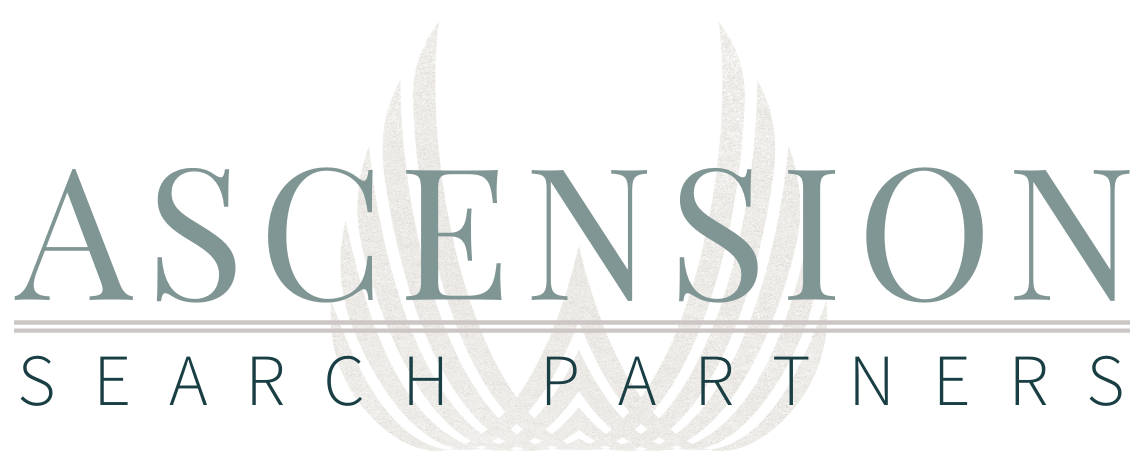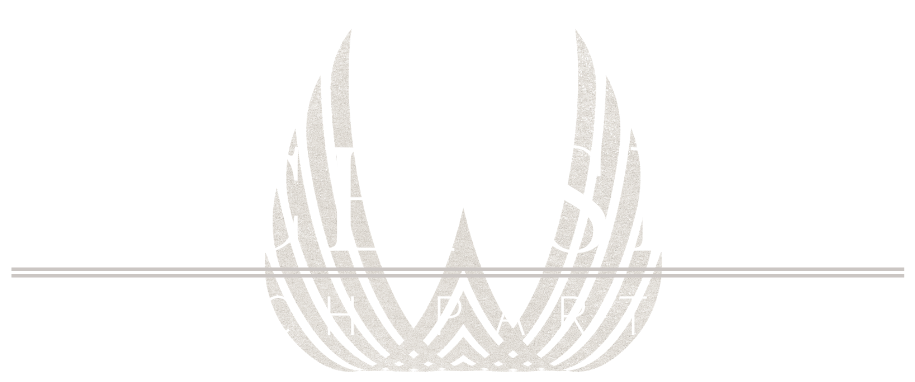Preparing for an executive interview requires more than just reviewing your resume and brushing up on your talking points. Whether you’re pursuing a CFO role, VP of Finance, or any senior leadership position, your ability to present yourself as a strategic, informed, and culturally aligned leader can make or break the opportunity.
In this blog, Ascension Search Partners offers actionable executive interview preparation tips to help you walk into your next conversation with confidence. We’ll cover how to leverage AI for company research, how to highlight your leadership achievements with measurable results, and how to ask smart interview questions that demonstrate both insight and genuine interest.
1. Be Fully Prepared: Use AI for Executive Interview Research
At the executive level, candidates are expected to come to interviews with a deep understanding of the business. That means more than just a quick scan of the company website. You should understand their industry positioning, recent news, financial performance, leadership changes, and strategic goals.
Today, you can use AI tools like ChatGPT or other research assistants to speed up and enhance your prep. For example, you can:
- Summarize recent earnings calls or 10-K filings
- Identify trends in their industry
- Analyze the backgrounds of executives you'll meet
- Generate a list of thoughtful questions based on recent developments
This level of preparation sets you apart and signals that you're not only serious about the opportunity but also proactive and strategic—traits every board or CEO looks for in a senior hire.
2. Know Your Experience—And Quantify It
Executive interviewers aren’t just looking for competency; they want to see impact. It’s critical that you know your career story and can speak to it clearly, confidently, and concisely.
This is where quantifiable achievements come into play. Metrics are a powerful way to frame your leadership value. Instead of saying “I improved the budgeting process,” say:
“I implemented a new forecasting process that reduced variance by 18% and improved cross-departmental alignment.”
Numbers help decision-makers see the real business value you bring. When preparing for the interview, identify 4-6 specific accomplishments that align with the company's current challenges. Structure your responses using the STAR method (Situation, Task, Action, Result), with special focus on results and ROI.
3. Ask Strategic Questions That Show Leadership Thinking
One of the best ways to differentiate yourself in an executive interview is by asking the right questions. Thoughtful, strategic questions serve two purposes:
- They show that you’ve done your homework.
- They help you determine whether the role and company are the right fit for your leadership style and goals.
Instead of generic questions, consider asking:
- “What are the top strategic priorities for the finance function in the next 12 months?”
- “What leadership traits have made previous executives successful here?”
- “How is success measured in this role beyond financial metrics?”
- “What are the dynamics between this role and other senior leaders across the business?”
These questions reveal your executive mindset and help you build rapport with interviewers. They also give you critical insights into company culture, leadership expectations, and alignment with your career goals.
4. Evaluate the Role as Much as You’re Being Evaluated
At the executive level, fit is everything. The best interviews are two-way conversations. Yes, you’re selling yourself—but you’re also evaluating whether this is a role where you can thrive and make a meaningful impact.
During the interview, assess:
- Is the leadership team aligned and communicative?
- Does the company’s mission or strategy resonate with you?
- Are the expectations clear, and are they reasonable?
- Will you be empowered to lead, or micromanaged?
Understanding these dynamics helps you avoid misaligned opportunities and ensure you step into a role where you can succeed long-term.
Final Thoughts: Executive Interview Success Starts with Preparation
Success in an executive interview is about more than credentials—it's about showing up prepared, self-aware, and aligned with the company’s vision and values. By using AI tools for smart research, speaking confidently about your quantifiable achievements, and asking insightful leadership-level questions, you’ll stand out in a highly competitive talent market.
At Ascension Search Partners, we specialize in placing finance and accounting executives in impactful roles across the middle market. Whether you're preparing for your first CFO interview or making your next leadership move, we’re here to support your journey.
Ready to make your next move? Reach out to our team today to explore executive opportunities that align with your expertise and ambitions.
About Ascension Search Partners
Boasting more than 50 years of combined recruitment experience, we know what it takes to deliver the right talent. Ascension Search Partners was founded on the belief that talent acquisition is a true business partnership, and we believe search partners should offer extensive market and functional knowledge, with an in-depth, consultative approach.
Recent Posts
Contact Our Team
Preparing for an executive interview requires more than just reviewing your resume and brushing up on your talking points. Whether you’re pursuing a CFO role, VP of Finance, or any senior leadership position, your ability to present yourself as a strategic, informed, and culturally aligned leader can make or break the opportunity.
In this blog, Ascension Search Partners offers actionable executive interview preparation tips to help you walk into your next conversation with confidence. We’ll cover how to leverage AI for company research, how to highlight your leadership achievements with measurable results, and how to ask smart interview questions that demonstrate both insight and genuine interest.
1. Be Fully Prepared: Use AI for Executive Interview Research
At the executive level, candidates are expected to come to interviews with a deep understanding of the business. That means more than just a quick scan of the company website. You should understand their industry positioning, recent news, financial performance, leadership changes, and strategic goals.
Today, you can use AI tools like ChatGPT or other research assistants to speed up and enhance your prep. For example, you can:
- Summarize recent earnings calls or 10-K filings
- Identify trends in their industry
- Analyze the backgrounds of executives you'll meet
- Generate a list of thoughtful questions based on recent developments
This level of preparation sets you apart and signals that you're not only serious about the opportunity but also proactive and strategic—traits every board or CEO looks for in a senior hire.
2. Know Your Experience—And Quantify It
Executive interviewers aren’t just looking for competency; they want to see impact. It’s critical that you know your career story and can speak to it clearly, confidently, and concisely.
This is where quantifiable achievements come into play. Metrics are a powerful way to frame your leadership value. Instead of saying “I improved the budgeting process,” say:
“I implemented a new forecasting process that reduced variance by 18% and improved cross-departmental alignment.”
Numbers help decision-makers see the real business value you bring. When preparing for the interview, identify 4-6 specific accomplishments that align with the company's current challenges. Structure your responses using the STAR method (Situation, Task, Action, Result), with special focus on results and ROI.
3. Ask Strategic Questions That Show Leadership Thinking
One of the best ways to differentiate yourself in an executive interview is by asking the right questions. Thoughtful, strategic questions serve two purposes:
- They show that you’ve done your homework.
- They help you determine whether the role and company are the right fit for your leadership style and goals.
Instead of generic questions, consider asking:
- “What are the top strategic priorities for the finance function in the next 12 months?”
- “What leadership traits have made previous executives successful here?”
- “How is success measured in this role beyond financial metrics?”
- “What are the dynamics between this role and other senior leaders across the business?”
These questions reveal your executive mindset and help you build rapport with interviewers. They also give you critical insights into company culture, leadership expectations, and alignment with your career goals.
4. Evaluate the Role as Much as You’re Being Evaluated
At the executive level, fit is everything. The best interviews are two-way conversations. Yes, you’re selling yourself—but you’re also evaluating whether this is a role where you can thrive and make a meaningful impact.
During the interview, assess:
- Is the leadership team aligned and communicative?
- Does the company’s mission or strategy resonate with you?
- Are the expectations clear, and are they reasonable?
- Will you be empowered to lead, or micromanaged?
Understanding these dynamics helps you avoid misaligned opportunities and ensure you step into a role where you can succeed long-term.
Final Thoughts: Executive Interview Success Starts with Preparation
Success in an executive interview is about more than credentials—it's about showing up prepared, self-aware, and aligned with the company’s vision and values. By using AI tools for smart research, speaking confidently about your quantifiable achievements, and asking insightful leadership-level questions, you’ll stand out in a highly competitive talent market.
At Ascension Search Partners, we specialize in placing finance and accounting executives in impactful roles across the middle market. Whether you're preparing for your first CFO interview or making your next leadership move, we’re here to support your journey.
Ready to make your next move? Reach out to our team today to explore executive opportunities that align with your expertise and ambitions.


